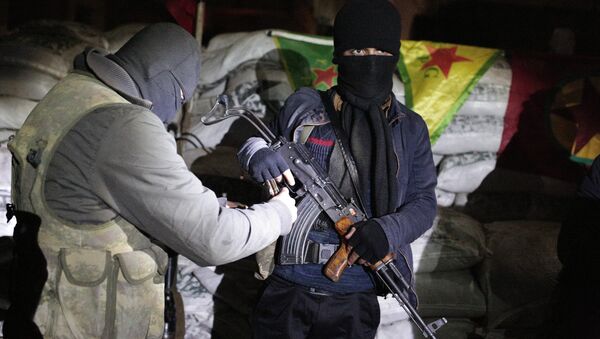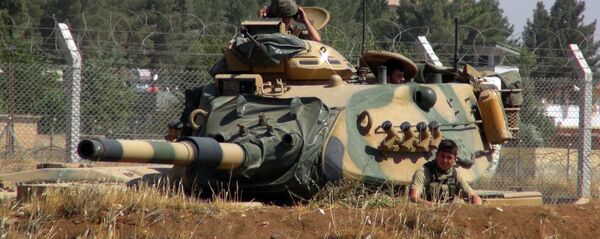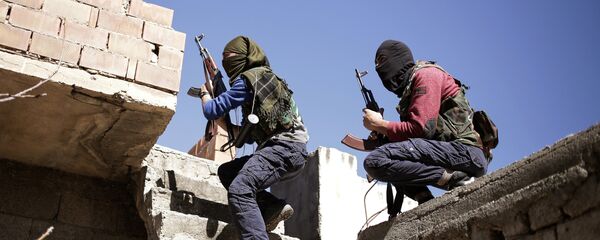Ankara, for its part, claims that the PKK is actively using the area between Sinjar and the village of Hanesor in order to deploy militants from Iraq to northern Syria, where it has been gaining ground against Daesh terrorists.
In an interview with Sputnik Turkey, Xelil Sivan, the press secretary of Peshmerga units in Sinjar said that "PKK fighters are concerned over the looming Turkish air operation, which is why they dug five underground tunnels in Sinjar."
Sinjar on brink of major conflict between PKK, Turkey https://t.co/12R3FLvRKC via @AlMonitor
— Guillaume Perrier (@Aufildubosphore) 11 мая 2017 г.
"Currently, PKK fighters remain inside these tunnels which are located both in Sinjar and its outskirts. We have heard that the Turkish armed forces are preparing for a new air operation, but we do not have more specific information on the issue," Sivan said.
Currently, Sinjar is ruled by the Iraqi Kurdistan Administration, with Peshmerga forces based in the town and nearby villages. Sinjar was liberated by Peshmerga units along with the PKK and Syrian Kurdish People's Protection Units (YPG) from Daesh in November 2015.
#PKK Raises #Iraq-i Flag over Its Headquarters in #Sinjar — #BasNewshttps://t.co/C2npa1f9Ne pic.twitter.com/SzVaTsmfUt
— BasNews English (@EnglishBasNews) 2 мая 2017 г.
On April 25, Turkish jets struck YPG positions in northern Syria and Iraq, killing about 70 Kurdish fighters, causing consternation and confusion around the globe.
In Iraq, the Turkish planes bombed Kurdish fighters from the Kurdistan Workers' Party in Sinjar region. In Syria, the air strikes targeted YPG positions in the Karachok Mountains in the northeast of the country.
Russian officials responded by condemning the Turkish air strikes against the Kurds in Syria and Iraq.
Turkey, however, claimed that the airstrikes were aimed at preventing the Kurdish fighters from sending terrorists and weapons to Turkey.
Never miss a story again — sign up to our Telegram channel and we'll keep you up to speed!




